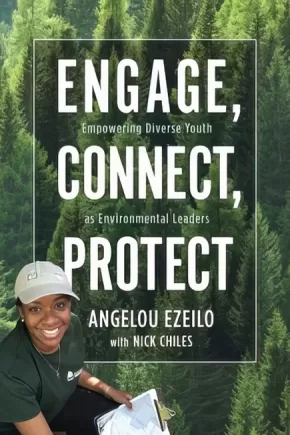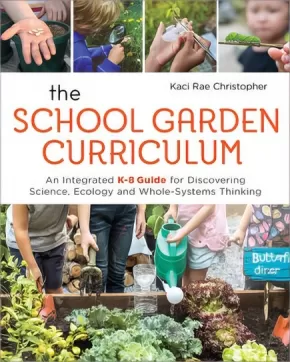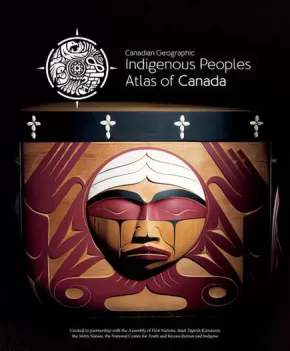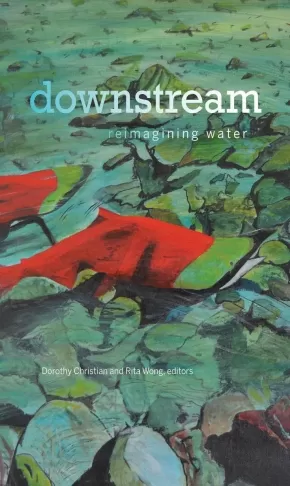Geography Resources
Synopsis:
From the creators of Potlatch as Pedagogy: Learning Through Ceremony, the Sḵ'ad'a Stories series brings intergenerational learning to life. Haida children learn important life lessons from their Elders through real-life situations, cultural traditions, and experiences out on the land.
Written by Sḵ'ad'a Stories author Sara Florence Davidson and educator Katya Adamov Ferguson, the Teacher Guide for the Sḵ'ad'a Stories helps teachers engage their students through the lens of intergenerational learning and authentic experiences. This guide:
- outlines the Sḵ'ad'a principles found in the stories
- shows how to use the Sḵ'ad'a principles in your classroom
- provides the behind-the-scenes thinking of the authors and illustrator
- explains the significance of this series as part of Haida cultural resurgence and preservation
- provides critical perspectives on the impact of colonialism on Haida knowledges
- includes resources and inspirations for educators
This teacher guide is appropriate for all grade levels.
Educator Information
Table of Contents
Introduction
About the Sḵ’ad’a Stories Series
About This Guide
Part 1: Teacher Preparation: Understanding Cultural Contexts and the Emergence of Sḵ’ad’a
Haida Culture and Knowledges
- Haida Gwaii
- Silencing the Haida
- Thriving Haida Communities
Understanding Sḵ’ad’a
- Conversation With Sara
- Branch of Davidson Family Tree
Becoming “Story-Ready”
- Holistic Engagement with Stories
Part 2: Teacher Learning: Sḵ’ad’a for Educators
Significance of Series
Intergenerational Stories
Sḵ’ad’a for Educators and Professional Learning Communities
Sḵ’ad’a Principles
Part 3: Teacher Practice: Ideas for Engaging With the Sḵ’ad’a Stories
Sḵ’ad’a Principles in Practice
Themes and Connections
Engaging Sḵ’ad’a Stories With Students
- Interactive Read-Alouds
- Making Meaning From Stories
- Mentor Texts
- Critical Literacy
- Artifactual Literacies
Sampling of Sḵ’ad’a Activity Ideas
Book-Specific Supports—Jigging for Halibut With Tsinii
Book-Specific Supports—Learning to Carve Argillite
Book-Specific Supports—Returning to the Yakoun River
Book-Specific Supports—Dancing With Our Ancestors
Resources
References
Additional Information
48 pages | 8.50" x 11.00" | Paperback
Synopsis:
Building environmental strength through a diversity of youth.
While concern about the state of our land, air, and water continues to grow, there is widespread belief that environmental issues are primarily of interest to wealthy white communities. Engage, Connect, Protect explodes this myth, revealing the deep and abiding interest that African American, Latino, and Native American communities – many of whom live in degraded and polluted parts of the country – have in our collective environment.
Part eye-opening critique of the cultural divide in environmentalism, part biography of a leading social entrepreneur, and part practical toolkit for engaging diverse youth, Engage, Connect, Protect covers:
- Why communities of color are largely unrecognized in the environmental movement
- Bridging the cultural divide and activate a new generation of environmental stewards
- A curriculum for engaging diverse youth and young adults through culturally appropriate methods and activities
- A resource guide for connecting mainstream America to organizations working with diverse youth within environmental projects, training, and employment.
Engage, Connect, Protect is a wake-up call for businesses, activists, educators, and policymakers to recognize the work of grassroots activists in diverse communities and create opportunities for engaging with diverse youth as the next generation of environmental stewards.
Educator Information
While this work has a US focus, it is still extremely relevant in other countries like Canada.
Additional Information
256 pages | 6.00" x 9.00"
Synopsis:
Sow the seeds of science and wonder and inspire the next generation of Earth stewards.
The world needs young people to grow into strong, scientifically literate environmental stewards. Learning gardens are great places to build this knowledge, yet until now there has been a lack of a multi-grade curriculum for school-wide teaching aimed at fostering a connection with the Earth.
The School Garden Curriculum offers a unique and comprehensive framework, enabling students to grow their knowledge throughout the school year and build on it from kindergarten to eighth grade. From seasonal garden activities to inquiry projects and science-skill building, children will develop organic gardening solutions, a positive land ethic, systems thinking, and instincts for ecological stewardship.
The book offers:
- A complete K-8 school-wide framework
- Over 200 engaging, weekly lesson plans – ready to share
- Place-based activities, immersive learning, and hands-on activities
- Integration of science, critical thinking, permaculture, and life skills
- Links to Next Generation Science Standards
- Further resources and information sources.
A model and guide for all educators, The School Garden Curriculum is the complete package for any school wishing to use ecosystem perspectives, science, and permaculture to connect children to positive land ethics, personal responsibility, and wonder, while building vital lifelong skills.
Additional Information
320 pages | 8.10" x 10.00"
Synopsis:
Indigenous perspectives much older than the nation itself shared through maps, artwork, history and culture.
The Royal Canadian Geographical Society, in partnership with Canada's national Indigenous organizations, has created a groundbreaking four-volume atlas that shares the experiences, perspectives, and histories of First Nations, Inuit and Métis peoples. It's an ambitious and unprecedented project inspired by the Truth and Reconciliation Commission's Calls to Action. Exploring themes of language, demographics, economy, environment and culture, with in-depth coverage of treaties and residential schools, these are stories of Canada's Indigenous Peoples, told in detailed maps and rich narratives.
This extraordinary project offers Canada a step on the path toward understanding.
The volumes contain more than 48 pages of reference maps, content from more than 50 Indigenous writers; hundreds of historical and contemporary photographs and a glossary of Indigenous terms, timelines, map of Indigenous languages, and frequently asked questions. All packaged together in a beautifully designed protective slipcase.
Educator Information
Recommended for ages 13+.
The Indigenous Peoples Atlas of Canada includes a four volume print atlas, an online atlas, an app, and more!
Additional Information
322 pages | 10.50" x 12.87"
Synopsis:
downstream: reimagining water brings together artists, writers, scientists, scholars, environmentalists, and activists who understand that our shared human need for clean water is crucial to building peace and good relationships with one another and the planet. This book explores the key roles that culture, arts, and the humanities play in supporting healthy water-based ecology and provides local, global, and Indigenous perspectives on water that help to guide our societies in a time of global warming. The contributions range from practical to visionary, and each of the four sections closes with a poem to encourage personal freedom along with collective care.
This book contributes to the formation of an intergenerational, culturally inclusive, participatory water ethic. Such an ethic arises from intellectual courage, spiritual responsibilities, practical knowledge, and deep appreciation for human dependence on water for a meaningful quality of life. downstream illuminates how water teaches us interdependence with other humans and living creatures, both near and far.
Reviews
"Downstream stakes out a bold and creative claim to collaborative and cross-cultural eco-spiritual-neo-traditional knowing and, with it, new approaches to policy and action. A timely read that lends depth and resonance to some of the material and voices [in other books on the subject]." — Heather Menzies, Literary Review of Canada, June 2017
"This rich collection brings together the work of artists, writers, scientists, scholars, environmentalists, and activists, all focusing on the looming global water crisis. ... Writing styles vary from piece to piece throughout the book—poetic, personal, journalistic, and academic—but the shifts between each are well worth navigating for any reader interested in human futures on Earth."— Publishers Weekly, August 2017
"This collection of works successfully expands our knowledge of and experience with water by merging natural science, social science, arts, and humanities approaches to water. It offers new, innovative, and engaging ways to think about and experience water, especially as it relates to life and vitality."— Sara Beth Keough, American Review of Canadian Studies, November -0001
Educator Information
This collection of essays is useful for these course/subject areas or topics: Language Arts & Disciplines; Creative Writing; Indigenous Studies; Poetry; Environmental Studies; Environmental Humanities.
Table of Contents
Introduction: Re-storying Waters, Re-storying Relations / Rita Wong and Dorothy Christian
Part I: Contexts for Knowing and Unknowing Water
1. Planetary Distress Signals / Alanna Mitchell
2. Water / Lee Maracle
3. Interweaving Water: The Incremental Transformation of Sovereign Knowledge into Collaborative Knowledge / Michael D. Blackstock
4. Water and Knowledge / Astrida Neimanis
5. Excerpts from “a child’s fable” / Baco Ohama
Part II: Water Testimonies: Witness, Worry, and Work
6. Water: The First Foundation of Life / Mona Polacca
7. From Our Homelands to the Tar Sands / Melina Laboucan Massimo
8. Keepers of the Water: Nishnaabe-kwewag Speaking for the Water / Renee Elizabeth Mzinegiizhigo-kwe Bedard
9. Water Walk Pedagogy / Violet Caibaiosai
10. A Response to Pascua Lama / Cecilia Vicuna
Part III: Shared Ethical and Embodied Practices
11. Moving with Water: Relationship and Responsibilities / Alannah Young Leon and Denise Marie Nadeau
12. Bodies of Water: Meaning in Movement / Seonagh Odhiambo Horne
13. Upstream: A Conversation with Water / Cathy Stubington
14. Ice Receding, Books Reseeding / Basia Irland
15. Tsunami Chant / Wang Ping
Part IV: A Respectful Co-existence in Common: Water Perspectives
16. Listening to the Elders at the Keepers of the Water Gathering /Radha D’Souza
17. Coastal Waters in Distress from Excessive Nutrients / Paul J. Harrison
18. Bodies of Water: Asian Canadians In/Action with Water /Janey Lew
19. Permeable Toronto: A Hydro-Eutopia / Janine MacLeod
20. Saturate/Dissolve: Water for Itself, Un-Settler Responsibilities, and Radical Humility / Larissa Lai
21. Bring Me Back / Janet Rogers
Additional Information
300 pages | 6.00" x 9.00"
Synopsis:
In Achieving Indigenous Student Success, author Pamela Toulouse provides strategies, lessons, and hands-on activities that support both Indigenous and non-Indigenous learners in the secondary classroom. Read chapters on topics such as:
- Indigenous Pedagogy and Classrooms Considerations
- Indigenous Self-Esteem and Mental Health Activities
- Differentiated Instruction and Bloom's Taxonomy
- Attrition, Retention, Transition, and Graduation Continuum
- Indigenous Themes and Material Resources
- Culturally Appropriate Secondary Lesson Plans by Subject (including English, Math, Science, History, Geography, Health, Physical Education, Drama, Music, Visual Arts, Technological Studies, Business Studies, Indigenous Worldviews, Guidance and Career Studies, and Social Studies and the Humanities)
This book is for all teachers of grades 9–12 who are looking for ways to infuse Indigenous perspectives into their courses. Ideas include best practices for retention/transition/graduation planning, differentiated instruction, assessment, and equity instruction. Using appropriate themes for curricular connections, the author presents a culturally relevant and holistic approach that helps to build bridges between cultures and fosters self-esteem in all students.
Additional Information
| 184 pages | 8.00" x 10.50" |












